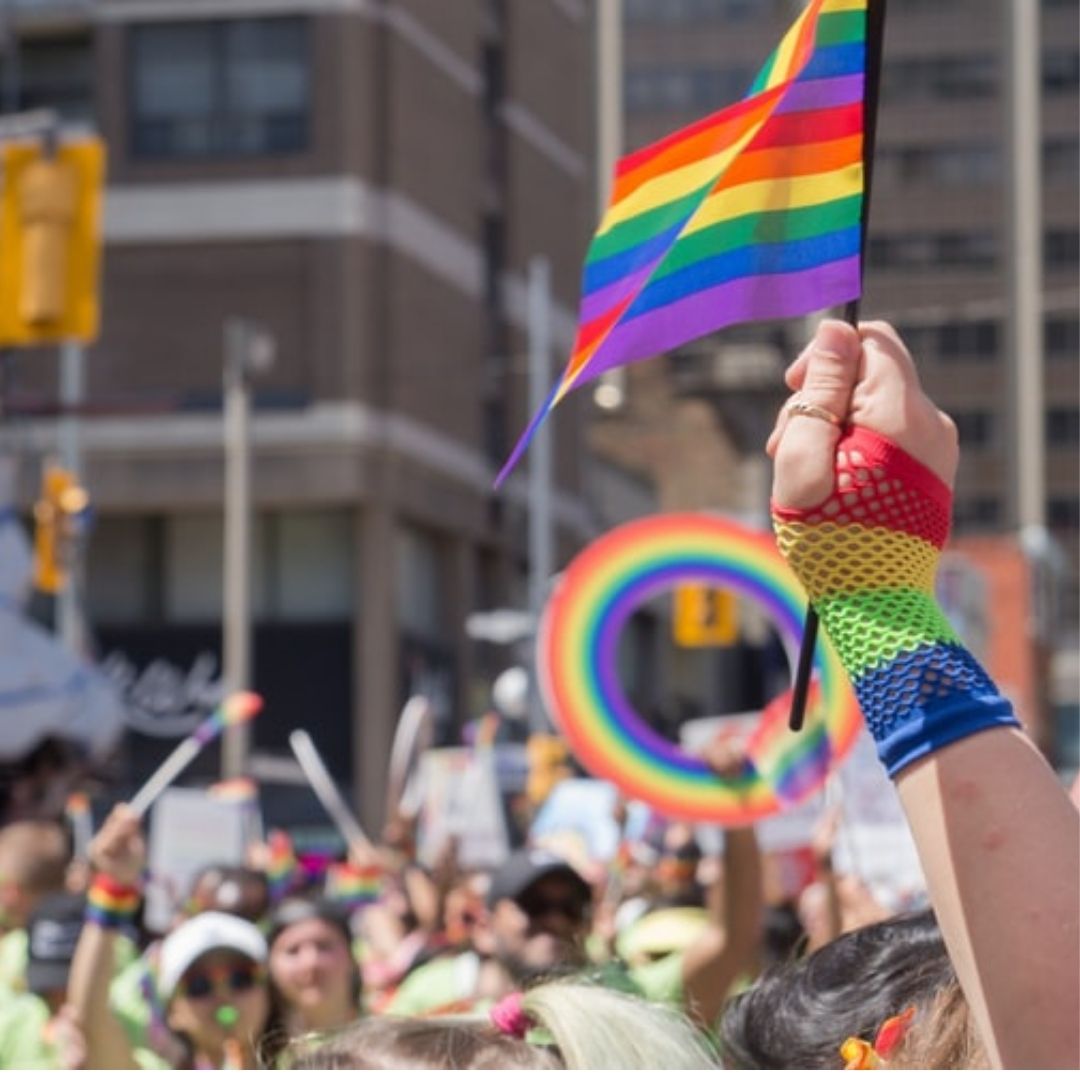
Image Credits: Unsplash
Will Taliban Execute LGBTQ Afghans Like Their Previous Rule?
Others/World, 19 Aug 2021 1:05 PM GMT | Updated 19 Aug 2021 2:01 PM GMT
Editor : Ankita Singh |
A literature lover who likes delving deeper into a wide range of societal issues and expresses her opinions about the same. Keeps looking for best-read recommendations while enjoying her coffee and tea.
Creatives : Tashafi Nazir
For most people, journalism sounds hectic and chaotic. For her, it's a passion she has been chasing for years. With an extensive media background, Tashafi believes in putting efforts on presenting a simple incident in the most interesting way.
The Taliban is most likely to enforce a strict law across the country, which would likely see many LGBTQ+ people persecuted. As per the rule, those belonging from this vulnerable group could be given death penalty, like they used to do during their previous regime.
The Taliban gained control over Afghanistan on 15th August, two decades after the insurgent group was driven out of power by US forces. Now after resuming power, the country witnessed brutal and harrowing scenes with thousands of people attempting to flee their own nation, rushing to the airport and clinging on to the tyres of planes.
According to the United Nations, around 40,000 Afghans have been displaced in 2021. As soon as the Taliban swept Afghanistan, fear loomed large among all the sections of society especially the vulnerable groups, like women. As per the U.S. State Department report from 2001, the Taliban made sure that the women had to cover themselves from head to toe, were barred from doing jobs or pursuing education, were not allowed to work unless accompanied by a male guardian.
Under the new regime, another uniquely vulnerable group whose fate seems almost uncertain is the LGBTQ community living in the country. Under the extremist Taliban control, there has been significant concern about the safety and well being of the people from this group.
The Taliban is most likely to enforce a strict law across the country, which would likely see many LGBTQ+ people persecuted. As per the rule, those belonging to this vulnerable group could be given death penalty, like they used to do during their previous regime.
Public Execution In Taliban Rule
Reportedly, Taliban is hunting down the LGBTQ people in Afghanistan right now. Taliban governance that made public execution of queer people a spectator sport before the U.S. military invasion pushed the regime back into the shadows. For gays, there are only two ways-either get stoned to death or stand behind a wall and wait till it falls on them.
The wall must be 2.5 to 3 metres high to make sure the person dies when it falls. The statement was made by Taliban judge Gul Rahim in a German newspaper Bild last month. They call this practice "wall-toppling". Unfortunately, this has compelled them to keep their gender identity and sexual orientation is hidden due to fears of intimidation, harassment, persecution and death.
On Monday, Nemat Sadat, a gay Afghan came out publicly and cried for help on his Twitter handle. "It's not hyperbole to say that the Taliban will do what Nazis did to homosexuals: weed them out and exterminate them from Afghan society. Please help," he tweeted. Sadat was fired from the teaching position at the American University of Afghanistan in Kabul for being gay. This made him later flee the country in 2013.
The religious nature of the Taliban on the subject has limited any scope for discussion, with mention of homosexuality and related terms considered a major sin. The Taliban decreed in 1996 that the mere existence of LGBTQ+ is illegal and that death is the ultimate destiny who disobey Sharia law.
LGBTQ's Situation During US Regime
Even during the US presence in Afghanistan, people from the community did not lead a peaceful life. As per a 2009 Justice Department report, no death sentences were pulled down after the end of Taliban regime, which is still technically possible under the new law.
Sharia law based punishment is more likely to occur in isolated, rural communities where private citizens and vigilant groups seek to punish anyone who does not follow strict Islamic morals. In the cities, persons convicted of homosexuality are generally sentenced to prison. In 2004, an American advisor to the Afghanistan government was arrested and sentenced to a prison sentence for homosexual activities with an Afghan man. Other news reports have also noted that other men have been imprisoned for engaging in such same-sex sexual behaviour.
Reportedly, after the Talibans were thrown out of Afghanistan, there was a sense of relief among queer people to some extent as they used to come out, make friends, date secretly through chat groups. Now fear that their phones could be tapped by the Taliban and will be hunted down.
While the modern-day Taliban sounds a bit moderate, but people remain concerned. Rainbow Railroad, a non-profit organisation helping out the LGBTQ community globally, is this time preparing to help Afghans from this community to flee.
Since the Taliban entered the country on Sunday, the organisation has so far received 50 requests for help and is estimated to increase in the coming time. Meanwhile, several countries have come forward to help the members of the LGBTQ community, who are at the most significant risk of suffering.
The Canadian government said that it is ready to accommodate up to 20,000 Afghans-including LGBTQ individuals to settle in the country. Similarly, US President Joe Biden said that the country will expand "refuge access to cover other vulnerable Afghans who worked for their embassy.
Also Read: Taliban Halts Trade With India, Stops Imports, Exports: Indian Export Federation
 All section
All section














